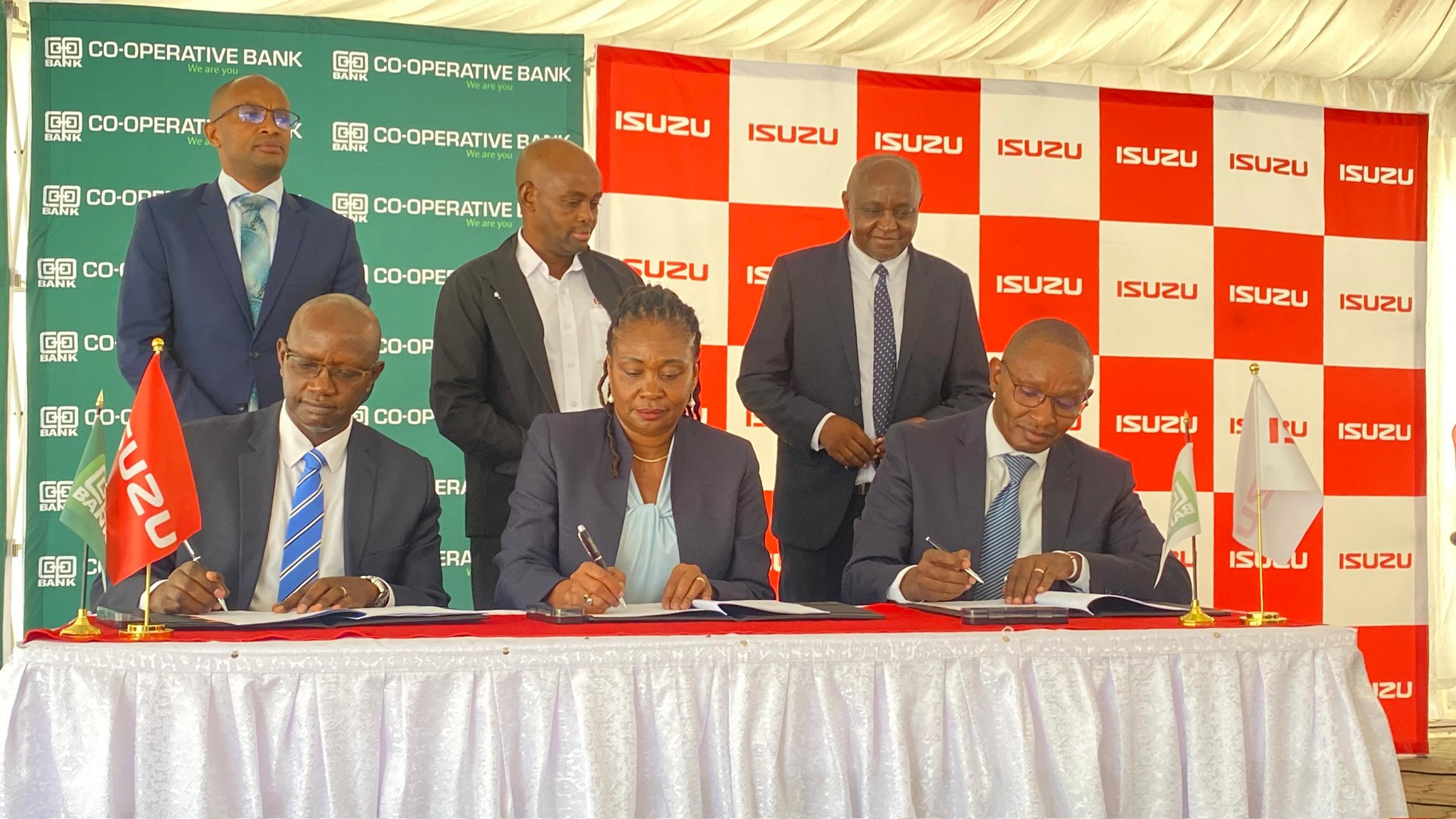Isuzu East Africa and the Cooperative Bank have announced an Asset Finance Scheme designed for schools and businesses that desire easier financing terms to cope with the current operating environment.
A good number of educational institutions and business continue to record reduced cashflows, which therefore calls for easier financing terms.
At an event held at Isuzu East Africa, the motor vehicle assembler’s Managing Director, Rita Kavashe said that:
“Today, Isuzu East Africa, has partnered with the Cooperative Bank to provide solutions that will address the needs of our customers during these challenging economic times. We are thrilled to launch a Financing scheme that provides a ninety five percent Financing option for Isuzu N-series, Isuzu F-series and Isuzu Pickups TFS and TFR Series.”

The current operating environment has affected the ability of many schools and businesses to secure necessary cash deposits for asset purchases.
This financial constraint limits their ability to initiate or expand investments in critical assets.
The Isuzu/Cooperative Bank Asset Finance Scheme provides the financial boost to enable customers raise enough cash deposits for purchasing new vehicles.
“The partnership aims to make vehicle acquisition easier for Kenyan schools and businesses with 100% and 95% asset financing respectively. The financing options cover all Isuzu vehicle models,” Rita explained.
On his part, Cooperative Bank Managing Director and Group CEO Dr Gideon Muriuki, observed that the Bank partnership with Isuzu East Africa is designed to assist educational institutions and business acquire the critical assets they require within their current financing abilities.
“We have observed that a good number of our business customers are giving priority to financing their stocks and operations.
We have therefore made available an additional digital credit of upto Ksh.1 million for MSME customers and Ksh.2 million to schools over and above the 95% and 100% asset Financing.” said Dr. Muriuki.
In addition, Co-op Bank announced that customers will also enjoy an extended loan repayment period of upto 72 months.
Educational institutions will have a one-term moratorium when they purchase the buses, with Repayment extended to 72 months on termly basis, which adds up to 18 terms at 0% processing fee, in addition to a working capital loan of up to Ksh 2 million.








